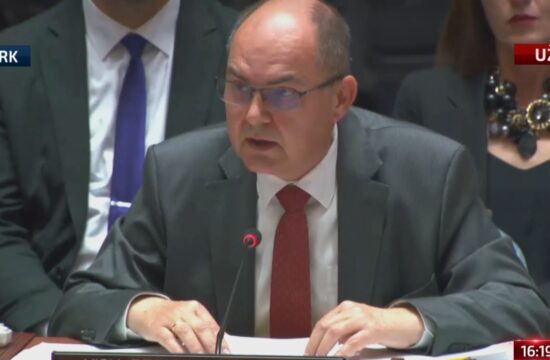
In an open letter, former member of the Commission for State Property, Muharem Cero, urged the international body overseeing Bosnia’s peace process, the Peace Implementation Council (PIC), to instruct Bosnia’s top international administrator, Valentin Inzko, to stop authorities in BiH’s Republika Srpska (RS) entity from offering state land as collateral for international loans and using some of that land without the state’s approval.
After the dissolution of Yugoslavia and with the signing of the Dayton Peace Agreement, ownership of land and resources has been transferred from the former state to Bosnia and Herzegovina.
However, Republika Srpska, one of the country’s two semi-autonomous entities, has used the land as if it was its owner until one of Inzko’s predecessors, Paddy Ashdown, imposed in 2005 the Law on the Temporary Prohibition of Disposal of State Property of Bosnia and Herzegovina.
The Law is still in effect, Cero reminded in his letter.
He also recalled that the Political Directors of the Peace Implementation Council Steering Board have in 2008 defined the ‘Agenda 5+2’, which contains five objectives that need to be delivered by the BiH authorities before the Office of the High Representative (OHR) can be closed.
Among them is the “Acceptable and Sustainable Resolution of the Issue of Apportionment of Property between State and other levels of government,” he said.
“As you are aware, authorities in BiH did not achieve this goal,” Cero wrote.
“Despite the existing prohibitions, the Republika Srpska entity ignored its obligations and unilaterally carried out the prohibited transfer of ownership of state property from the continuity of the Socialist Republic of Bosnia and Herzegovina,” Cero wrote.
He then accused Republika Srpska and Serbia of performing “the unconstitutional and illegal transfer of ownership on the property” affected by the 2005 ban
“by invoking the rights to parallel and special relations” between Serbia and Republika Srpska foreseen by the Dayton Peace Agreement.”
He argued that this is the case with Serbia’s construction of an airport in the southern town of Trebinje, where the “immovable state property – forest and agricultural land is being transferred from its owner, the state of BiH, by those who do not own it, the RS, to a new owner, the Republic of Serbia, through signed illegal agreements.”
Another case he gave is a joint project between the power utility companies of the RS and Serbia – the construction of hydropower plants on the Drina river, which the Constitutional Court is also reviewing. Cero argued that the project ignores the ban on the property as well as the BiH Constitution.
“As the legal protectors of property and legal interests of the state of BiH (prosecutor’s offices at all levels) are not reacting, which the law on prohibition of disposal obliges them to do, I expect you to suspend all actions, acts and decisions that violate the Law on Prohibition of Disposal of State Property, and to obligate the High Representative to BiH, Valentin Inzko, to declare the unconstitutional and illegal actions null and void, based on his powers under Annex 10 of the Dayton Peace Agreement,” Cero wrote.
Cero also noted that the collateral Republika Srpska offered in order to borrow 350 million euros at the London Stock Exchange includes property that is subject to the ban.
“By the same order, the High Representative would based on your decision, prevent the created debt from being pursued from the state and not entity property,” he added.






Kakvo je tvoje mišljenje o ovome?
Budi prvi koji će ostaviti komentar!